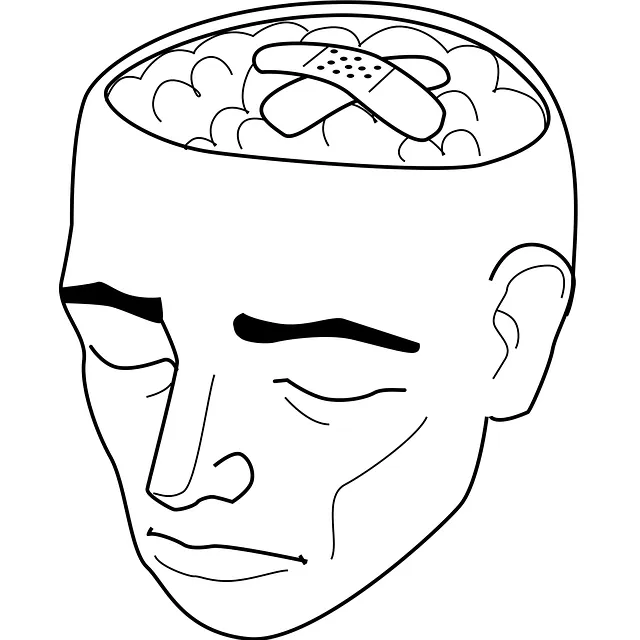Lafayette Kaiser Permanente is committed to tackling healthcare provider burnout through comprehensive mental health support initiatives. They offer counseling, stress management programs, and cultural sensitivity training, along with social skills and conflict resolution workshops. These strategies promote resilience, reduce stress, and foster open dialogue about mental well-being. By emphasizing self-care practices, setting boundaries, and creating supportive networks, Lafayette Kaiser Permanente cultivates a culture that prioritizes staff health, leading to improved patient outcomes and increased job satisfaction.
Healthcare provider burnout is a growing concern, especially within large organizations like Lafayette Kaiser Permanente. This article explores effective strategies to prevent burnout among healthcare professionals at Lafayette Kaiser Permanente. We delve into understanding the unique challenges faced by these providers, focusing on implementing robust mental health support systems and fostering a culture that prioritizes self-care and work-life balance. By examining these key areas, we aim to provide insights that promote a healthier and more sustainable workforce within the healthcare sector, with a specific emphasis on Lafayette Kaiser Permanente’s approach to mental health.
- Understanding Burnout Among Healthcare Providers at Lafayette Kaiser Permanente
- Implementing Effective Mental Health Support Strategies
- Fostering a Culture of Self-Care and Work-Life Balance
Understanding Burnout Among Healthcare Providers at Lafayette Kaiser Permanente

Burnout among healthcare providers is a growing concern, and Lafayette Kaiser Permanente recognizes its impact on both professionals and patients. This organization has taken significant steps to understand and combat burnout, especially within their mental health services. By implementing various strategies, they aim to create a supportive environment that promotes well-being and enhances patient care.
One of the key initiatives is providing resources for mental health support, including counseling services and programs focused on stress management and resilience building. Additionally, training sessions on Social Skills Training and Conflict Resolution Techniques are offered to help healthcare providers navigate challenging situations effectively while maintaining healthy relationships with colleagues and patients. Furthermore, emphasizing Cultural Sensitivity in Mental Healthcare Practice ensures that providers are equipped to offer tailored care, considering diverse cultural backgrounds and beliefs, which is essential for preventing burnout and improving patient outcomes.
Implementing Effective Mental Health Support Strategies

Implementing effective mental health support strategies is a crucial aspect of preventing burnout among healthcare providers, especially in organizations like Lafayette Kaiser Permanente. This includes integrating services that address the unique psychological needs of medical professionals while promoting cultural sensitivity in mental healthcare practice. By fostering an environment where open discussions about mental well-being are encouraged, healthcare workers can access tailored interventions and support systems.
Mindfulness meditation and self-care routine development are evidence-based practices proven to enhance resilience and reduce stress levels. Lafayette Kaiser Permanente can facilitate dedicated programs or workshops focused on these strategies, empowering staff to manage their mental health proactively. Such initiatives not only benefit individual providers but also contribute to a healthier organizational culture, improving patient care and overall job satisfaction.
Fostering a Culture of Self-Care and Work-Life Balance

In the healthcare industry, fostering a culture that prioritizes self-care and work-life balance is an essential strategy to prevent burnout among providers. Lafayette Kaiser Permanente has been at the forefront of recognizing this need, implementing various initiatives to support mental health and overall well-being. By promoting a mindset shift from ‘mind over matter’ principles, where healthcare professionals are expected to power through stress, to a more empathetic approach, they are encouraging open conversations about burnout and its prevention. This cultural shift involves normalizing self-care practices, such as setting boundaries, taking breaks, and accessing available mental health resources, including therapy and support groups.
Empathy-building strategies play a pivotal role in this process. By fostering connections and understanding among colleagues, healthcare providers can create supportive networks that reduce feelings of isolation. This collective approach to self-care not only benefits individual mental health but also improves patient care by ensuring professionals are present, engaged, and less likely to experience depression or other burnout-related issues.
Burnout among healthcare providers is a growing concern, but through implementing mental health support strategies tailored to the unique needs of professionals at Lafayette Kaiser Permanente, and fostering a culture that prioritizes self-care and work-life balance, it’s possible to revolutionize their well-being. By recognizing and addressing burnout early, Lafayette Kaiser Permanente can ensure its healthcare providers remain resilient and dedicated, ultimately enhancing patient care and creating a more sustainable professional environment.






